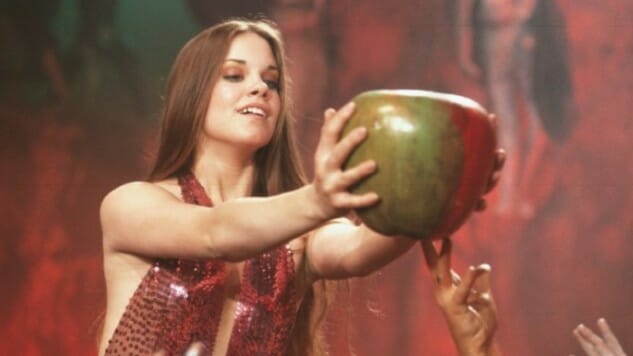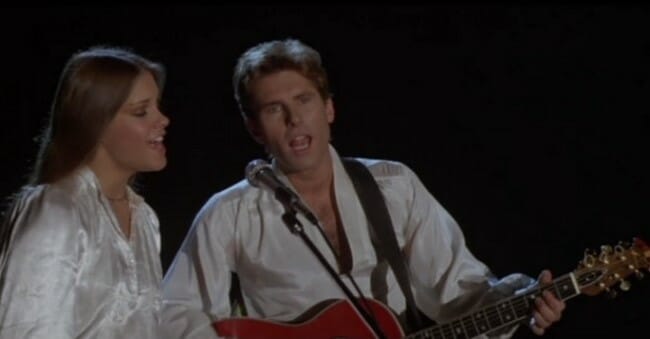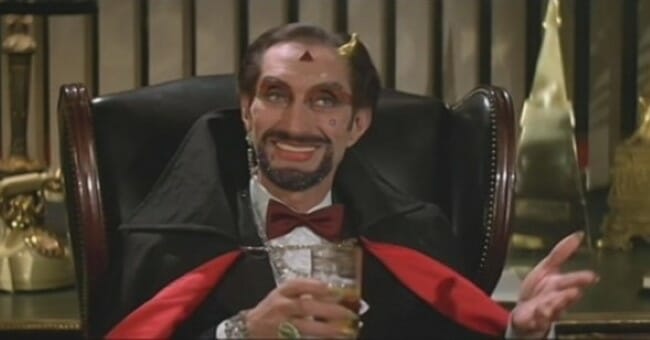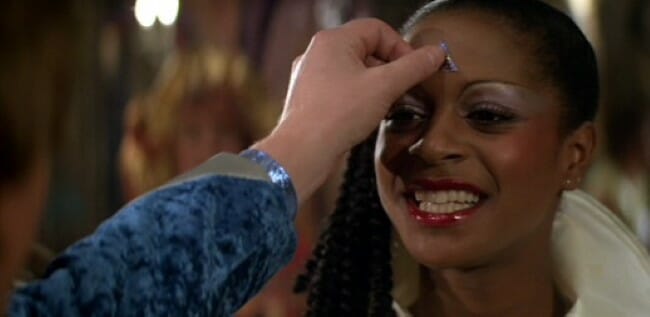Bad Movie Diaries: The Apple (1980)
Photos via Amazon Prime Video
Jim Vorel and Kenneth Lowe are connoisseurs of terrible movies. In this occasional series, they watch and then discuss the fallout of a particularly painful film. Be wary of spoilers.
Ken: Jim, you and I have watched many, many bad movies in our time here, but I submit to you that Cannon’s The Apple is without a doubt the most cringe-inducing, the most mortifying, the absolutely most embarrassing feature we’ve ever watched. I have, in our two-plus years writing this humble column, gone from a man who lives in a sad walk-up apartment to a guy who co-habitates with a girlfriend and children. I legitimately could not watch this while they were in the room.
Jim: And it’s not like the content is “risque,” or anything like that. It’s just so miscalculated that you feel profound embarrassment for everyone involved, including yourself while watching. This film has the power to induce embarrassment.
Ken: This is my doing, Jim. I asked you to seek out a musical, thinking that this is bad movie ground upon which we have not yet trod. I did not anticipate that seeing people commit 255% to horrible performances is somehow even worse when those performances are in song. Hilariously campy, groaningly bad song. How did you discover this dud?
Jim: The Apple is one of those movies I’ve probably been hearing references to for a decade or more, but I’ve never made time to watch it until now. It’s like … something I would read the Wikipedia entry on every few years, think “maybe I should screen this at a bad movie night sometime,” and then ultimately chicken out of doing so. I know now that this was the work of some guardian angel trying to keep me safe, but alas, he took this week off. I do get the sense, however, that this movie has a bit of a cult, somewhere.
Ken: I wonder if said guardian angel drives a white Cadillac through the sky, appearing randomly in the last five minutes of your day with no prior mention of him. Why don’t you describe the premise of this deeply weird film?
Jim: I’ll do my best. The year is 1980’s futuristic conception of 1994. The world has somehow been completely toppled by a megalithic record label named BIM (Boogalow International Music) that has near total power over police, government and the citizenry, although this isn’t really clear at first. The evil head of this label, Mr. Boogalow, makes or breaks any form of entertainment that exists in this dystopian disco future, while brutally suppressing anyone who attempts to make “genuine” music. Our protagonists, meanwhile, are a folk rock-singing duo named Alphie and Bibi, with fashion sensibilities deeply enmeshed in the 1970s. They are as doe-eyed and stupid as you already suspect them to be.
Ken: I’m glad you clarified it is “BIM” because I seriously wasn’t sure if it was that or VIM. And there are no subtitles on this. I am a guy who doesn’t give people crap for their accents in stuff, but the linguistic barriers are clearly tripping people up here. Where was this production based?
Jim: Apparently it was filmed in both the U.S. and Berlin? The guy who plays Mr. Boogalow, Vladek Sheybal, is most recognizable as the Russian chess expert who masterminds the plot against James Bond in From Russia with Love.
Ken: I did look him up because he immediately rang a bell. He’s probably the best part of this movie, and even he is badly, badly served by it. His big number is terrible. Jim, all the songs in this movie are godawful.
-

-

-

-

-

-

-

-

-

-

-

-

-

-

-

-

-

-

-

-

-

-

-

-

-

-

-

-

-

-

-

-

-

-

-

-

-

-

-

-

 We trust that you can imagine the earnest stupidity of these two without even hearing their song.
We trust that you can imagine the earnest stupidity of these two without even hearing their song. THIS guy is Satan? Get out of town!
THIS guy is Satan? Get out of town! Some people would probably call the BIM Mark ostentatious, but not us.
Some people would probably call the BIM Mark ostentatious, but not us.






































